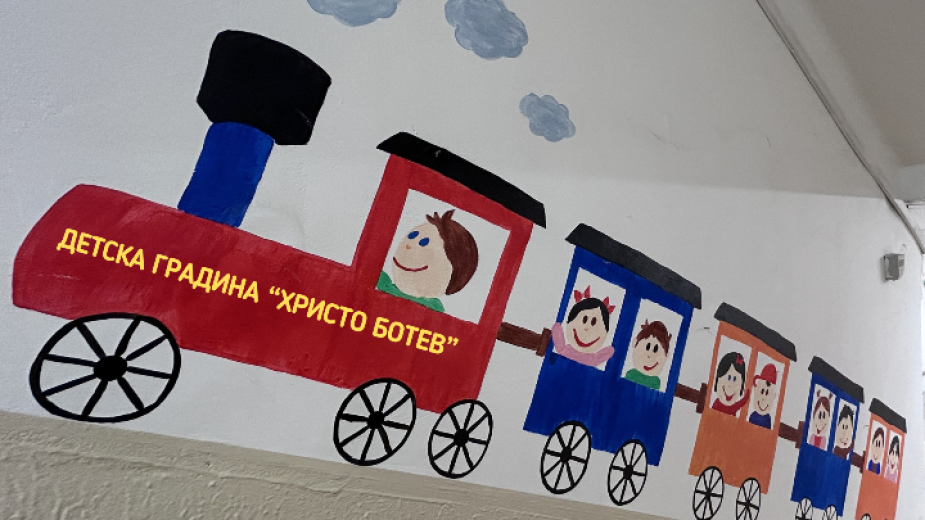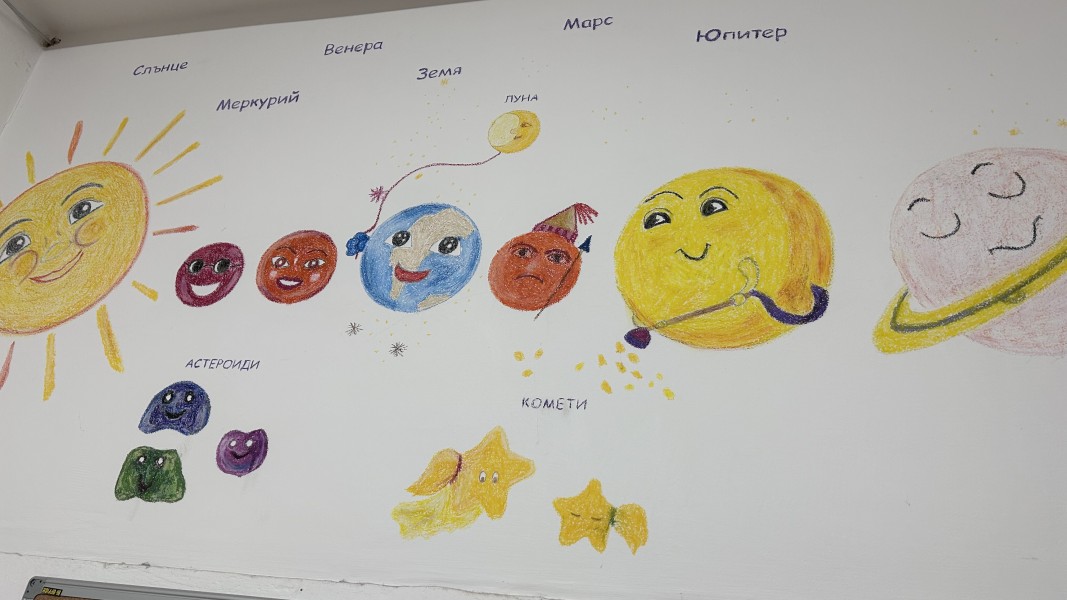 10
10
Help me do it myself, get me in touch with nature, take care of my immunity – these are the principles that the teachers at the Bulgarian kindergarten "Hristo Botev" in the Slovak capital Bratislava follow. The kindergarten has been operating since 2009 and its founder is the organization Civil Association Friends of the Bulgarian School "Hristo Botev". It is located in the school building on Záporožská 8 street in the Petržalka district.
Small groups, good environment, a green yard, an infra-red sauna, a relaxation room, various educational projects and a lot of love – this is what characterises the Bulgarian kindergarten in Bratislava. It is a private kindergarten operating at full capacity and is attended by children of different nationalities, which is a prerequisite for mutual cultural enrichment and the development of multicultural sensitivity in children, head of the kindergarten, Marianna Kapráliková, tells us.
"There are 52 children in the kindergarten. The majority are children from Slovak families and our educational program is tailored to this,” Mrs. Kapráliková says. “We speak and learn in Slovak and Bulgarian is an additional language. Along with our daily activities, we also celebrate Bulgarian holidays here - Baba Marta, Cheesefare Sunday, May 24, Enyovden, all autumn holidays, Christmas... Before bringing their children to us, most Slovak parents had no contact with Bulgarian culture, but very quickly they begin to greet us in Bulgarian, to be interested in Bulgaria, to visit it as tourists, to show interest in history and even in the political situation in the country."
Most impressive for the children are the folk dances and costumes from Bulgaria. Movement is something natural and it makes the children happy, the director says and specifies that they have also organised a folklore workshop.
"The children are very happy when they dress in Bulgarian folk costumes. This is a special experience for them and they treat the Bulgarian traditional costumes with extreme respect and love. "
The transition from the Bulgarian kindergarten to the Bulgarian secondary school "Hristo Botev" is also natural. Quite a few parents express interest in their children continuing their education directly at the school, Anna Ivanova, who is responsible for the finances of the kindergarten, tells us.

During the Covid-19 pandemic a special relaxation room was also created in the kindergarten at the idea of Marianna Kapráliková.
"After the pandemic began we noticed an increased incidence of illnesses and a decreased immunity in children. We developed a project to support not only their physical but also their mental health. We transformed one of our rooms into a place where children can relax. We purchased an infra-red sauna and developed a program according to which children use the sauna twice a week from October to April. After sauna they can lie down and rest.
Every Wednesday we also have a meditation class – a qualified specialist comes and teaches children to express their feelings, to be able to say when and what they are afraid of, to pay attention to friendship, to learn to understand nature and take care of it. As a result of these activities, the children's over-excitement decreased. They became calmer, they treat each other with respect, they have no conflicts with each other, and morbidity also dropped."
People come to the Bulgarian kindergarten with word-of-mouth recommendations, there is no other advertising, Marianna Kapráliková adds. She herself is Slovak, but thanks to her work with Bulgarian teachers, she has also grown to love Bulgaria. Often her colleagues surprise her with a Bulgarian dish, and she is happy to get involved in the preparation of Bulgarian yogurt using old technology. But that's not all:
"My brother grows Bulgarian tomatoes in greenhouses in eastern Slovakia,” Marianna Kapráliková says. “We like Bulgarian cuisine very much. We often prepare sarmi, baked pumpkin or pumpkin pie, for Christmas we cook beans and knead bread. When they visit Bulgaria, the parents of the children from our kindergarten also bring new recipes, which we try here. I myself have been to Bulgaria five times so far. I am impressed by Bulgarian history, the sea, especially Varna. What I like about Bulgarians is that you have many traditions, as well as that you observe them. And I want to wish all the listeners of Radio Bulgaria to live happily in their homeland, to have good teachers for their children as we have here in the Bulgarian kindergarten in Bratislava, in order to raise a healthy and responsible generation."
Read also:
Publication in English: Alexander Markov
Photos: Krasimir Martinov
The first Dalmatian Pelican of this season hatched a few days ago in the protected area Kalimok - Brushlen near the Danube town of Tutrakan, reports the Bulgarian Society for the Protection of Birds "BirdLife Bulgaria". The parents are taking active..
More than 4,000 participants from 52 masquerade groups from all over the country will take part in the Jamala National Masquerade Festival in Kyustendil on 15 and 16 February. A children's folklore procession will start from Velbazhd Square at 10.30 a.m...
With more 40 thousand archaeological sites and artifacts, Bulgaria is a true open-air museum. In terms of the number of finds, this country ranks third in the world after Italy and Greece. From the Neolithic, eight millennia ago, to..
21 February is International Mother Language Day, first proclaimed as such by UNESCO and later adopted by the UN General Assembly. The right to..
Prayer served by His Holiness Bulgarian Patriarch Daniil on February 22, marks the beginning of the celebrations for the consecration of..
"The place in France where we draw together the future of our children in Bulgarian" - this is how Yaneta Dimitrova described her workplace - the..

+359 2 9336 661
